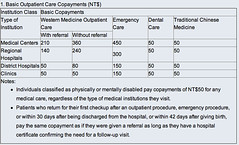

Drug coupons steering consumers far from generics, driving up charges of healthcare
Picture the predicament of drug company executives whenever patent protection runs out on their flagship drug treatments, forcing them to contend with products that are enormously cheaper, yet basically do the same thing.
As much as possible being equal, shoppers will migrate to the generic alternative, rather than pay a large out-of-pocket co-payment for the brand-name variation.
In order solve this particular dilemma, the ever-ingenious drug firms invented a solution to reduce and sometimes eliminate the costly co-pay for consumers. Now they just provide patients using co-payment cards or coupons, based on a story in Sunday’s Times.
Pfizer just introduced one card for its blockbuster drug Lipitor. Instead of a $50-plus co-payment, the card delivers the price down to just a little as $4, the same amount charged by Wal-Mart for a generic version with the statin.
On the surface it appears as a good deal for buyers, but to the level it increases the costs which insurance companies pay for medicines, the cards and coupons create insurance premiums that much higher priced. Both insurance companies along with consumer groups contact the coupons marketing jokes, that enrich rich drug companies at the eventual expense of the consumer, by driving up the cost of providing the prescription advantage.
Drug manufacturer Medicis uses the coupon scheme in order to push its product Solodyn, a once-per-day formulation in the antibiotic minocycline used to treat acne. A month’s supply of your medication runs about $700, instead of about $40 to the generic version. The only real difference is that the simple version of minocycline should be taken twice each day.
The company’s website comes with a discount card to consumers, reducing the expense to under $10 a month, providing that sufferers have health insurance. Great for the consumer, but the insurance company gets stuck with the bill in the 100’s of dollars, instead of the $40.
The Times reported that in a business presentation to investors, the company said that the majority of people use the co-pay card to get Solodyn, which recently helped double the number of prescriptions to 26,000 per week.
When insurance companies are presented the balance for brand-name drugs on the generic alternative, the impact on premiums might be exceedingly high.
For example take the costs paid with the health plan at District 37, a union representing open public employees in Area. During the year ended June 2009, the cost of cholesterol-lowering statins ended up being $17.3 million for 59 percent for these claims, and only $179,000 for the generic edition of similar statins representing another 41 percent involving claims.
While free drug card and coupons are unhampered available and utilised frequently by patients for expensive medications, the companies are banned for offering them to patients in national programs such as Medicare, since they are considered the inducement to use the item and violate anti-kickback laws.
Insurance companies and local drugstore benefit management businesses would like to somehow take away the coupons and cards, nevertheless say that there is little they could do at the moment. The current system isn’t able to supply them with information on whether the patient or the drug firm was responsible for the particular co-payment.
For more information about medicaation savings card please visit the website.

